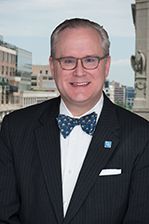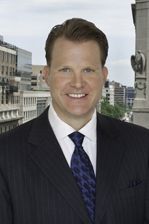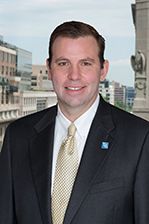Court says therapy service can’t arbitrate whistleblower case
» Read the court’s opinion here
A U.S. appeals court ruled on Monday that a Las Vegas-based children’s therapy service could not force a former employee to arbitrate a whistleblower lawsuit alleging that it defrauded federal healthcare programs.
The 9th U.S. Circuit Court of Appeals in San Francisco ruled that the plain text of Mary Kaye Welch’s arbitration agreement with My Left Foot Children’s Therapy LLC did not encompass her lawsuit.
U.S. District Judge Miranda Du in Reno, Nevada had in June 2016 denied the motion on the grounds that because her lawsuit was brought on behalf of the United States and Nevada, which had not agreed to arbitrate the claims.
The three-judge 9th Circuit panel affirmed the decision but on different grounds, citing the language in Welch’s arbitration agreement itself, which said it did not cover a False Claims Act lawsuit.
“Though the question of the enforceability of a relator’s agreement to arbitrate FCA claims is interesting, our holding rests on a rather unremarkable textual analysis,” U.S. Circuit Judge Raymond Fisher wrote.
R. Scott Oswald, a lawyer for Welch at Employment Law Group, in a statement said although the ruling was based on her specific contract, Fisher also made clear the court would have nullified an agreement that covered False Claims Act claims.
“With this ruling, the Ninth Circuit puts a stop to employers’ inappropriate efforts to push False Claims Act cases into arbitration,” he said.
Rex Heinke, a lawyer for My Left Foot at Akin Gump Strauss Hauer & Feld, did not respond to a request for comment.
Welch, who is a speech therapist, filed the lawsuit in 2014 under the False Claims Act, which allows whistleblowers to sue companies on the government’s behalf to recover taxpayer money paid out based on fraudulent claims.
The government may intervene in the cases. If successful, whistleblowers receive a percentage of the recovery.
In her case, the Justice Department did not, leaving Welch to litigate on her own claims that My Left Foot and its co-owners violate the False Claims Act and a similar Nevada law by presenting fraudulent claims to Medicaid and Tricare, which provides benefits to military service members.
She claims that My Left Foot treated patients who could not benefit from therapy and billed for those unnecessary services, leading to false claims for reimbursement to be submitted to government healthcare programs.
In October 2015, My Left Foot and its co-owners, Ann Marie and Jonathan Gottlieb, moved to compel Welch to arbitrate her claims pursuant to an agreement she signed during the course of applying for a job with the company in 2013.
On appeal, My Left Foot had cited a clause broadly covering “all disputes, whether they be based on the state employment statutes, Title VII of the Civil Rights Act of 1964, as amended, or any other state or federal law or regulation.”
But Fisher wrote that section was “irrelevant” and said only a separate section of the contract that the court held limited the disputes to being related to her employment or association with My Left Foot.
Changing Currents in Employment Law 2017: Recent Trends and Developments
This yearly class provides an update on cutting-edge issues and the changing nature of employment law. Leading employment practitioners from both sides of the aisle will explain the law and give practice pointers on how cases are litigated and issues are dealt with in federal and state courts.
TELG managing Principal R. Scott Oswald will advise on different rights government employees have in the work place versus government contractors in the DC, Maryland, and Virginia area.
3.0 Credit Hours CLE Credit Available.
COSTS
DC Bar Members $99.00
Government Attorneys $109.00
Others $129.00
The National Employment Lawyers Association’s Trial Boot Camp
The National Employment Lawyers Association’s Trial Boot Camp is an intensive three-day skills-based program specifically designed for plaintiffs’ employment lawyers at all levels of trial experience. The Boot Camp will feature interactive demonstrations and presentations on successful techniques and strategies for trying employment cases, as well as mock proceedings designed to mimic the rigorous pace and schedule of trial. Topics covered will include opening statements, closing arguments, direct and cross-examination of witnesses, the rules of evidence, jury selection, and more.
On Thursday October 12, 2017, TELG managing Principal R. Scott Oswald and Cynthia Forman Wilkinson will present on the importance of captivating a jury during direct examination. Participants will understand all aspects of an effective direct examination from strategy and credibility issues to offers of proof and preserving objections to protect your record on appeal. The presenters will demonstrate how to admit an exhibit into evidence and how to respond to evidentiary objections.
Advocate Registration closes September 8, 2017.
NELA Members $850
Non-NELA Members $1,200
Early-Bird Registration ends September 20th, 2017.
NELA Members $650
Legal Services/Public Interest $600
Government Attorneys $600
Paraprofessionals $600
Non-NELA Members $950
Conscientious Objectors: What Employees Can — and Can’t — Refuse to Do on Religious Grounds
» To register for just $99 (54% off!), click here and use promo code SPEAKER17
This fall, the Supreme Court will hear arguments in Masterpiece Cakeshop, Ltd. v. Colorado Civil Rights Commission. The case concerns whether a Colorado bakery owner can lawfully refuse, on religious grounds, to create a wedding cake for the celebration of a same-sex marriage. Although it isn’t technically an employment case, Masterpiece is certain to reignite the debate over religious “conscientious objectors” in the workplace. Kentucky county clerk Kim Davis is perhaps the most visible example, having won short-lived fame in 2015 when she went to jail rather than issue marriage licenses for same-sex couples. In a similar vein, Wyoming judge Ruth Neely recently was disciplined for refusing to perform same-sex marriages; she has asked the U.S. Supreme Court to review her case. A Supreme Court victory for the Colorado baker — or for Judge Neely — will embolden workers who believe their religious views should trump their employers’ job requirements (or the law).
What can employees refuse to do on religious grounds, and will Masterpiece make any difference? Under Title VII, employers must reasonably accommodate their employees’ religious beliefs and practices unless such accommodation would impose “undue hardship.” What this means isn’t firmly settled, however — particularly in the private sector. What if a bakery owner wanted to make a cake for a same-sex wedding, but an employee refused to do it on religious grounds? Could the owner fire the employee? Does it matter if the owner simply could ask a different employee?
On October 31, 2017, TELG managing principal R. Scott Oswald will participate in a webinar titled “Conscientious Objectors: What Employees Can — and Can’t — Refuse to Do on Religious Grounds.” Together with Kara M. Ariail, a partner at Holland & Knight, Mr. Oswald will discuss best practices for accommodating employees with needs that arise from sincerely held religious beliefs.
This webinar will offer best practices for three main scenarios:
- Default rules under Title VII, as interpreted by the Supreme Court and other courts. For instance, can employees refuse to:
- Shave a beard?
- Remove a headscarf?
- Serve certain customers?
- The special case of government employees, whose religious speech/acts may raise additional First Amendment concerns — and who possibly may be affected by Masterpiece, depending on how it is decided
- The special case of religious employers, who have more leeway to discriminate against employees on the basis of religion
This panel discussion, which will consider the perspectives of both employers and employees, is aimed mostly at legal and human-resources professionals. Its organizer, Bloomberg BNA, will facilitate CLE credit for most jurisdictions.
» To register for just $99 (54% off!), click here and use promo code SPEAKER17
Three Attorneys from The Employment Law Group® Law Firm Are Honored in Best Lawyers in America
Carter Named in Two Categories; Sixth Year in a Row for Oswald and Woodfield
———-
WASHINGTON, D.C. (August 24, 2017) — Based on high praise from their peers, three attorneys from The Employment Law Group® law firm have been honored with listings in the latest edition of The Best Lawyers in America.
It is the first such recognition for Adam Augustine Carter, a principal of the firm, who also became the first TELG attorney to be listed in two separate employment categories — litigation and the representation of individual employees. Both R. Scott Oswald and Nicholas Woodfield, meanwhile, were named in the prestigious guide for a sixth consecutive year.
Best Lawyers has published its rigorous peer rankings for more than three decades. It conducts an annual poll of leading attorneys in each practice area; the 2018 list was culled from a nationwide total of 7.4 million votes.
 Carter“Being recognized by my fellow attorneys is a great honor,” said Mr. Carter. “It validates what I believe — and what is our firm’s strategy, really: When you give 100% to every client, word gets around. This is a reputation I’m very happy to have.”
Carter“Being recognized by my fellow attorneys is a great honor,” said Mr. Carter. “It validates what I believe — and what is our firm’s strategy, really: When you give 100% to every client, word gets around. This is a reputation I’m very happy to have.”
Mr. Carter is known for his zealous advocacy, at trial and on appeal, of employees who stand up to discrimination and retaliation by their employers. He also represents whistleblowers who uncover fraud in the workplace, and he is heavily sought by high-level executives who want help negotiating compensation or severance agreements.
The 2018 edition of Best Lawyers marks the sixth listing in a row for Mr. Oswald and Mr. Woodfield. Mr. Oswald, who is managing principal of The Employment Law Group, is named in the employment litigation category; Mr. Woodfield, the firm’s general counsel, is honored for representation of individual employees.
 Oswald“This latest recognition reflects the work of an entire team at TELG,” said Mr. Oswald. “Adam, Nick, and I wouldn’t be on this list without the support of our fellow principals, our associates, and our clerks and staff. Ultimately our firm’s success is measured in satisfied clients, of course — but the respect of our peers is precious, too, as a seal of approval on our work.”
Oswald“This latest recognition reflects the work of an entire team at TELG,” said Mr. Oswald. “Adam, Nick, and I wouldn’t be on this list without the support of our fellow principals, our associates, and our clerks and staff. Ultimately our firm’s success is measured in satisfied clients, of course — but the respect of our peers is precious, too, as a seal of approval on our work.”
A graduate of The Trial Lawyers College and past president of the Metropolitan Washington Employment Lawyers Association, Mr. Oswald is ranked as one of the Top 100 lawyers in Washington, D.C. He speaks publicly on laws that protect employees, and is quoted frequently by media outlets including The Wall Street Journal.
Mr. Woodfield emphasized the value of Best Lawyers listings to potential clients who must choose an attorney without much guidance. “When most people approach us with an employment problem, they’ve never hired a lawyer before,” he said. “An endorsement from other attorneys helps to verify that they’re making the right decision. Having three of our firm’s principals on this list — well, it’s clearer still.”
 WoodfieldWashingtonian magazine has recognized Mr. Woodfield as one of the “Top Lawyers” in Washington, D.C. He is a frequent speaker, panelist, and media commenter, especially on retaliation claims and the proper application of the Fair Labor Standards Act. Mr. Woodfield is a former president of the Virginia Employment Lawyers Association.
WoodfieldWashingtonian magazine has recognized Mr. Woodfield as one of the “Top Lawyers” in Washington, D.C. He is a frequent speaker, panelist, and media commenter, especially on retaliation claims and the proper application of the Fair Labor Standards Act. Mr. Woodfield is a former president of the Virginia Employment Lawyers Association.
In addition to being recognized by Best Lawyers, attorneys at The Employment Law Group have received accolades from legal authorities including Martindale-Hubbell and American Lawyer Media. All five of TELG’s principals are currently recognized by Super Lawyers, and the firm has been chosen by U.S. News & World Report and Best Lawyers for their annual listing of “Best Law Firms” since 2014.
———-
About The Employment Law Group
The Employment Law Group® law firm represents whistleblowers and employees who stand up to wrongdoing in the workplace. Based in Washington, D.C., the firm takes cases nationwide.
What You Say Will Be Held Against You
(Introduction posted by 1A)
A Google engineer was fired this week over a memo he wrote about what he saw as the company’s “politically correct monoculture” and questioning policies aimed at hiring more women.
He argued that women were biologically less suited for certain jobs in tech, drawing outrage over both his opinions and over his firing.
Healthy organizations thrive on different opinions and perspectives — but what is out of bounds? Who gets to decide what words cross the line and when they should cost you your job?
—–
(Excerpt of show transcribed by The Employment Law Group)
John Donvan (host): Let me go first to David Scher. As we’ve mentioned, this gentleman, James Damore, has decided now to try to sue Google for — I’m assuming the broad category would be some kind of unfair dismissal. Does he have legal protection in this situation?
David Scher: You know, it’s interesting: I’m a civil rights lawyer and I represent whistleblowers, but I find myself on the side of Google in this case. And I also find it interesting because I’ve heard many conservative media, you hear on the conservative side, support for this whistleblower — which I would have thought would be the opposite, that conservatives would be in support of the employer. So — and I think the reason, and I know you didn’t want to talk about the content [of Damore’s memo], but I think we have to —
Donvan: We can allude to it. We just didn’t want to spend a lot time debating whether women are as capable as men in the workplace, because that is a separate conversation.
Scher: Whether that statement is true or not really isn’t the point. It’s the point that he made that statement, and I think that’s where he crosses the line. I think employees are protected, from all kinds of protected conduct, making all kinds of statements in the workplace. The First Amendment is limited in the workplace, and there are a number of laws to protect an employee, but you can’t violate a company’s policy against discrimination. Even though Google has its own problems in this area, here [Damore] specifically comes out and says the problem is with — that gender disparity in the workplace is biology, not sexism. And not only is that statement false — and we don’t have to go there — but that statement is inherently discriminatory because it buckets a whole group of people.
Donvan: Under the law, you’re saying, that’s the case then?
Scher: Yes, under the law.
Donvan: So it’s not simply about how Google’s management might feel about him, or about that issue, but you’re saying under the law [Damore] crossed a line legally.
Scher: Yes, exactly. And Google didn’t have to fire him, but my view is that it was entitled to do so. Now we don’t have all the facts. There may be other factors playing into this, other complaints he made. He may have engaged in other protected conduct where he might have a claim. But based on the information that I have, and the facts that are before me, he’s not going to win.
“False Claims Act Today” CLE attracts heavy hitters in law
Scott Oswald, managing principal of The Employment Law Group P.C. in Washington, D.C., will visit Buffalo next month to moderate a CLE titled “The False Claims Act Today” at the U.S. Courthouse in Niagara Square.
The Sept. 19 event will run 11:30 a.m.-2 p.m. and will feature a panel of local judges, attorneys and government officials.
Oswald said the CLE is designed to be an overview on the ins and outs of the False Claims Act, based on how the various U.S. Attorney offices are set up.
“What we’re trying to do is shed a light on how this is being investigated and how the U.S. Attorney’s Office in Buffalo is structured,” he said.
The False Claims Act stems from the Civil War and was enacted in 1863. According to Oswald, President Abraham Lincoln would visit the battlefields and wonder why the troops were given substandard rations and uniforms. The generals would explain to Lincoln that they were goods provided for the war effort and there wasn’t a tool to stop it and ensure there were consequences for those profiting from the war. He said Lincoln decided that the government didn’t have an adequate auditing agency and wanted to create an incentive for people who knew about fraudulent activity to come forward.
“It’s a statute that allows a private citizen, through the proper procedure, to notify the government that there has been fraud on the government,” he said. “To the extent that the government agrees and then collects monies from the fraudsters, the individual who comes forward can be rewarded. It incentivizes integrity. The reward can be as much as 30 percent of what the government receives.”

